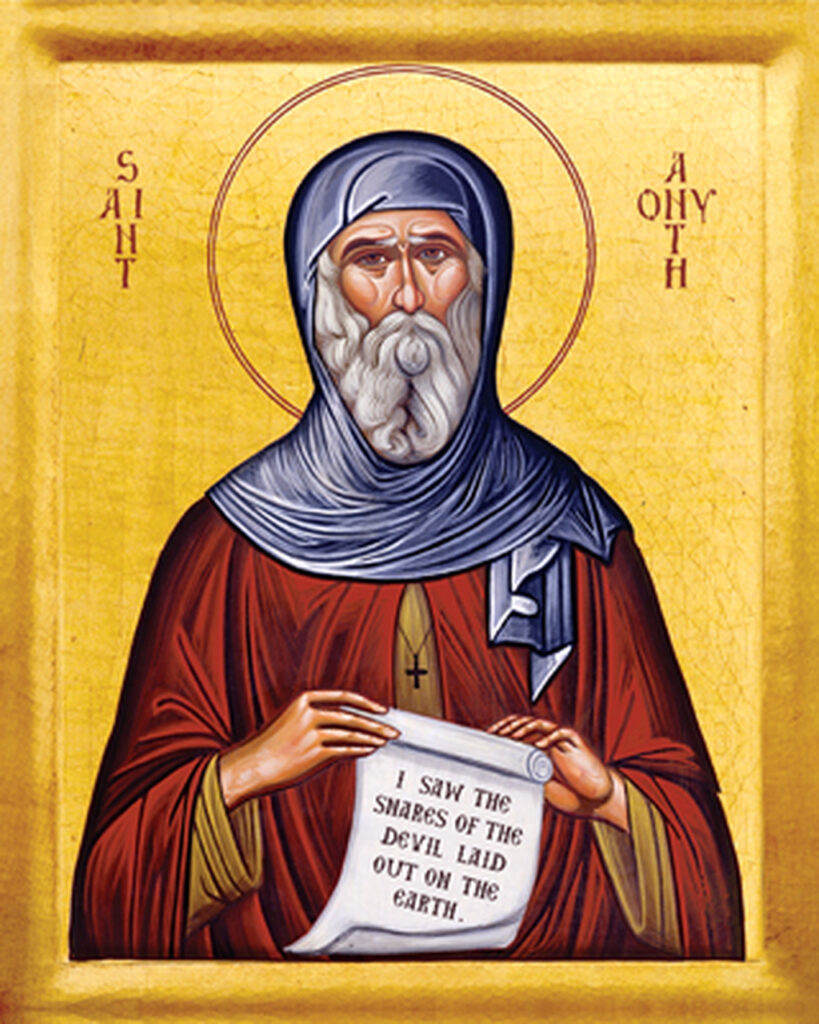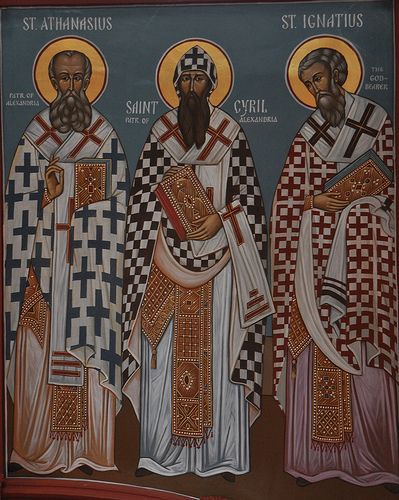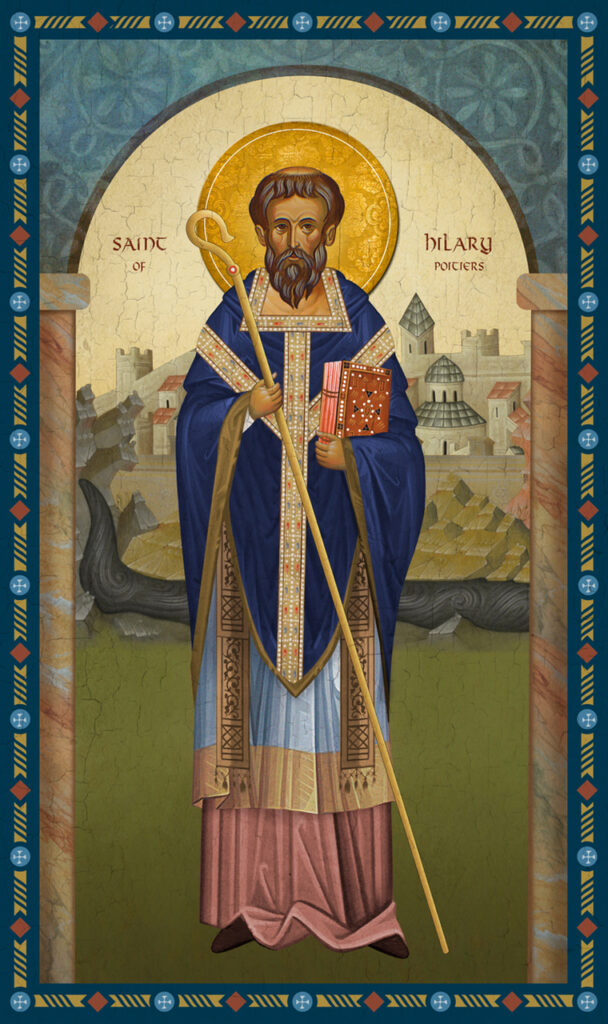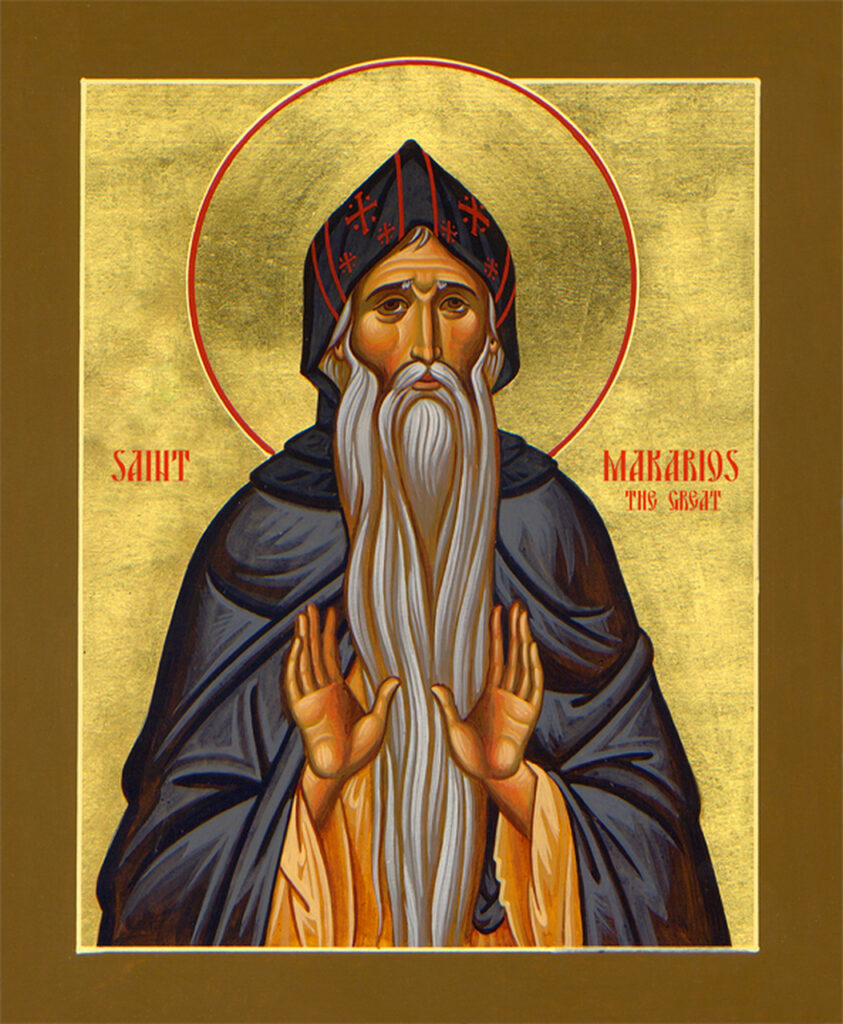Dear Friends
I have, this morning, sent our more formal request to use a Church building in Eastleigh: they have agreed in principle to consider it and this may be the start of more formal negotiations. This is, therefore, a time where we must redouble our prayers: is this how the Lord wants us to be Christians? Is this how we should glorify him? Does the Lord desire that you take a more active part?
Our Church is, though, not a building: our Church is the Body of Christ — it is you and it is me. We pray that the Lord establish our Church, but this means establish us in faithfulness, in love, in trust in the mercy of God. We look to the examples of faith, the saints, to guide us, to encourage us, to strengthen us by the power of the Lord. And when we make this faith our own we express it through what we do: we pray and we let that prayer inspire us, we love and we act upon that love.
We see the peoples of Eastleigh and the surrounding area and we love them enough that we establish a house for the Lord in their midst — in our midst! — as expressed through the Faith of the Orthodox Church, that God may be glorified and they may learn his love towards all.
Please pray. And please act on that prayer.
Blessing of homes
As I mentioned last week, it is a pious and beautiful tradition to have our homes blessed after Theophany: I would be honoured if you were to invite me to your home to bless it for the year ahead.
Please get in contact and we can arrange a mutually convenient time.
Study Weekend
Truth in the Face of Heresy:
Spiritual Life in the Witness of St Irenaeus of Lyons
The Orthodox Fellowship of St John the Baptist organises a study weekend every January/February: this year it will be held at our mother parish in Poole Friday 21st – Saturday 22nd February. We will consider St Irenaeus of Lyons.
St Irenaeus lived in the second century and was the disciple of St Polycarp of Smyrna who himself was a disciple of St John the Theologian — so, St Irenaeus was the “spiritual grandson” of the beloved disciple of the Lord to whom was entrusted the care of the Theotokos after Christ’s death and resurrection.
St Irenaeus was bishop of Lyons, in southern France, and wrote an important and much-quoted work, Against Heresies, where he justifies true Christian belief against the falsehood around him. This is something we have to do as a Church — stand up for the truth — and we can learn much from the work of this beloved saint.
Coming to lead us in learning about St Irenaeus will be Bishop Irenei of London, the bishop of the Russian Orthodox Church Outside of Russia (ROCOR) diocese covering Britain and Ireland as well as much of Western Europe. As well as being an expert on the saint, he is engaging and popular.
I strongly recommend you come, further details, including application form, are here.
https://forerunner.org.uk/2019/11/04/study-weekend-on-st-irenaeus-of-lyons/
There is a cost, but please do not let that put you off: please speak to me if you would like to come and we can arrange for it to happen.
Sermon
I preached a sermon yesterday at St Dunstan’s Church, Poole: I hope it is of interest to you.
In the name of the Father, and of the Son, and of the Holy Spirit, One God, Amen.
What can we say, dear brothers and sisters in Christ, of John the Forerunner? The Lord himself calls him the greatest born of women. He is the pinnacle of the prophets, the Baptist of the Lord, the herald of the Kingdom of Heaven, the Forerunner of God. The Lord, quoting the Prophet Malachi, says of him,
Behold, I send My messenger before Your face, Who will prepare Your way before You.
The Forerunner spoke truth to power. When Herod the tetrarch took his own brother’s wife, John told him, “It is not lawful for you to have her,” and he was imprisoned and eventually executed for this statement of truth.
Dear brothers and sisters, are we willing to speak the truth? Are we willing to stand for truth in the face of power? Do we stand behind and with those who are speaking the truth?
It is not enough, dear brothers and sisters, to merely assent to truth, to proclaim it with our lips while denying it with our actions. The Apostle James speaks about this in his Epistle,
If a brother or sister is naked and destitute of daily food, and one of you says to them, “Depart in peace, be warmed and filled,” but you do not give them the things which are needed for the body, what does it profit? Thus also faith by itself, if it does not have works, is dead.
We could rephrase this last sentence, “Thus also, truth by itself, if it does not have works, is dead.” The Forerunner was a man who let his actions demonstrate the truth of his word. We must do likewise; we are not to speak of the plight of the homeless without ourselves making an effort to alleviate their hardships nor are we to speak of the sin of abortion without offering help to women who find themselves in an unmanageable situation. For us, speaking the truth goes hand-in-hand with acting the truth.
…
Read the rest here.
Resources
Have you looked at our Website? orthodoxeastleigh.uk
It is very basic at the moment. If you click on the “Blog” link, or directly here, you will see all past emails as well as sermons etc.
Our Facebook Page, facebook.com/orthodoxeastleigh, too, has daily additions during the week as well as on feast days. Please do like and share our page and content so we may reach a wider group of people.
Do you receive the weekly (on Fridays) text message? If not, then let me know.




We are blessed this week with the feasts of some great hierarchs and ascetics.
St Hilary of Poitiers
13th January
St Hilary was a leader of Christianity in France and his writings, which can still be read today, have led him to be referred to as the “Athanasius of the West.” He helped defend the Faith against Arianism. His important work, ‘On the Trinity,’ helped express in Latin what had already been expressed of the Faith in Greek. He served as a faithful bishop of Poitiers, France in the fourth century.
St Anthony the Great
17th January
There is, perhaps, no greater saint of the desert than St Anthony, beloved by monastics and ascetics. In his youth, he heard the words of the Lord in the Gospel reading, “If you want to be perfect, go, sell what you have and give to the poor, and you will have treasures in heaven; and come, follow Me,” (Matthew 19:21) and did exactly that — selling his goods and giving the money to the poor he went to dwell in the desert. There is struggled against the passions. News of his virtue spread, so many came to him that, we are told, “the desert was transformed into a city.”
Saint Athanasius says of him that “his countenance had a great and wonderful grace. This gift also he had from the Saviour. For if he were present in a great company of monks, and any one who did not know him previously wished to see him, immediately coming forward he passed by the rest, and hurried to Anthony, as though attracted by his appearance. Yet neither in height nor breadth was he conspicuous above others, but in the serenity of his manner and the purity of his soul.”
Ss Athanasius the Great and Cyril, Archbishops of Alexandria
18th January
“In the half-century after the First Ecumenical Council held in Nicea in 325,” we are told, “if there was one man whom the Arians feared and hated more intensely than any other, as being able to lay bare the whole error of their teaching, and to marshal, even from exile or hiding, the beleaguered forces of the Orthodox, it was Saint Athanasius the Great.” It is difficult to underestimate the importance of this saint for the whole Church. At the age of about twenty he wrote, ‘On the Incarnation,’ showing a profound theological understanding. St Athanasius spent much of his life defending the First Ecumenical Council, held in Nicea, against Arians. He was exiled from Egypt several times for his faith, spending a total of 17 out of 57 years forcibly removed from his people. He lived until the year 373, in time for him to pass on his defense of the faith to St Basil the Great who was consecrated Archbishop of Caesarea in 370.
Saint Athanasios wrote the life of Saint Anthony the Great, with whom he spent time in his youth; ordained Saint Frumentius first Bishop of Ethiopia; and in his Paschal Encyclical for the year 367 set forth the books of the Old and New Testaments accepted by the Church as canonical. Saint Gregory the Theologian, in his “Oration On the Great Athanasios”, said that he was “Angelic in appearance, more angelic in mind; … rebuking with the tenderness of a father, praising with the dignity of a ruler … Everything was harmonious, as an air upon a single lyre, and in the same key; his life, his teaching, his struggles, his dangers, his return, and his conduct after his return … he treated so mildly and gently those who had injured him, that even they themselves, if I may say so, did not find his restoration distasteful.” (Source here)
St Cyril was born in 376 and later also ascended the Throne of St Mark. He, too, needed to defend Orthodoxy, this time against the teachings of Nestorius. He presided over the Third Ecumenical Council. held in Ephesus, and refuted the teachings of Nestorius. He died in 444.
[The icon above shows these two champions of Orthodoxy with another great hierarch, St Ignatius the God-bearer of Antioch]
St Macarius the Great
19th January.
St Macarius was, some believe, a disciple of St Anthony. He struggled in asceticism in the desert at Scete.
It is said of Saint Macarius that he became as a God upon earth, for even as God protects the whole world, so did he cover the faults he saw as if he did not see them. Once he came back to his cell to find a thief taking his things and loading them on a camel. Macarius’ non-possessiveness was so great that he helped the thief load the camel. When the camel refused to rise, Macarius returned to his cell and brought a small hoe, said that the camel wanted the hoe also, loaded it on, and kicked the camel telling it to get up. The camel obeyed Macarius’ command, but soon lay down again, and would not move until everything had been returned to Macarius. His contemporary, Saint Macarius of Alexandria, was so called because he came from Alexandria and was therefore of that Greek-speaking colony; while Saint Macarius the Great is also called “of Egypt,” that is, he belonged to the ancient race native to Egypt, the Copts. (Source here)
Can I help you?
I am here for you, you need only ask. Is there a way I can support your life of faith? Get in touch.
Can you help the mission?
I am still hopeful that we will start to meet and hold divine services soon: for this to happen we will need the prayers of you all. Please hold me and each other in your prayers before God that we may be able to offer praise to God as a worshipping community.
With love in Christ
Fr Alexander
webenquiry@orthodoxeastleigh.uk
